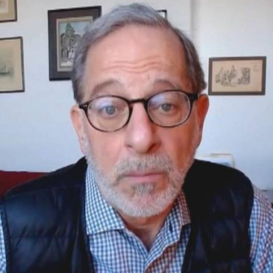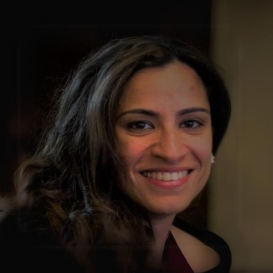In the past two weeks, more than 1,000 people have been killed in Lebanon and 6,300 injured by Israeli strikes. Hassan Nasrallah, the leader of Lebanese militant group Hezbollah, was also killed on September 27. While the looming implications of this conflict remain unclear, we asked AUC faculty members who study the region to share their thoughts.
Why Conflict? Why Now?
Bahgat Korany, professor of international relations and political economy, broke down Israel’s objectives into three points:
- Militarily: eliminate the threat of an enemy, Hezbollah.
- Domestically: allow Israelis in the north to return to their region and feel secure, and increase support for the current Israeli government while it is still on the defensive because of the hostage crisis. A direct objective of prolonging the violence is to save Netanyahu from being tried on corruption charges.
- Regionally and strategically: show that Israel is the dominant power, omnipresent and multi-capable. It can do what it decides, and no deterrence whatsoever will work.
In a nutshell, “It is the present Israeli government that wants a regional war,” said Korany.
Jason Beckett, associate professor of law, gave an international law perspective. “Law of war contains two clear principles: the duty to distinguish between civilians and combatants, and the duty of proportionality.” In international law, “the targeting of walkie-talkies and pagers would probably be considered a war crime” and the targeted assassinations are also deemed “problematic."
“The number of casualties already approached in just two or three days what it was after 33 days [in the 2006 Israel-Hezbollah War].”
Social, Human Cost in Lebanon
The war has already had devastating effects in Lebanon, displacing as many as a million people internally and causing more than 30,000 people to flee to war-torn Syria.
Sean Lee, assistant professor of political science, finds that the conflict’s human cost is “even worse than it was in the Israel-Hezbollah War in 2006” as “the number of casualties — the number of people killed and injured — already approached in just two or three days what it was after 33 days in 2006.”
Beckett said that prospects for human rights in Lebanon are “pretty awful,” speculating that essentially all rights will be broken. “The people of Lebanon suffer. They’ve been suffering anyway, but now they suffer more,” Beckett said, emphasizing the human impact of the attacks.
Economically, Korany said that “all indicators without exception show the deteriorating situation, from the worthlessness of the Lebanese currency to the shortage of medicine and basic goods.” Beyond economics, Korany pointed out that “Lebanon is already what we call in political science a ‘fragile/failed state,’ and with displacement from the south, the state’s incapacity to cope will increase.”
Prior to October 7, Lebanon was recovering from what the World Bank called one of the world’s worst financial crises since the 1850s. That crisis was exacerbated by the coronavirus pandemic and domestic protests triggered by the Beirut port explosion on August 4, 2020. In the years since those pivotal events, Lebanon had reached a period of political deadlock and economic depression, lasting until the country was dragged into an active state of war over these past weeks.
“The Lebanese lira lost 90% of its value, and about 80% of the population live around the poverty line. Israeli military attacks are making a bad situation far worse,” said Korany. State actors, including the government and Lebanese Armed Forces, remain mostly uninvolved in the current war.
"Lebanon is already what we call in political science a ‘fragile/failed state,’ and with displacement from the south, the state’s incapacity to cope will increase.”
Future Expectations
“The situation is bleak,” said Beckett, who has low faith in the international community’s willingness to take action, such as through sanctions and embargoes. The U.S. response is the most relevant to the situation, which Beckett said “is a problem as Biden, Harris and Trump all support the Gaza genocide.”
According to Lee, “If we take certain Israeli cabinet ministers at their word, they would like to see ground invasion and occupation, if not even annexation of South Lebanon.” Lee does not think the annexation is realistic, but he noted that “Israel has a long history of occupying South Lebanon,” invading it in 1978 and 1982 and occupying it from 1982 until 2000. “It would not surprise me if [there is a ground invasion that] leads to a longer occupation, but I think that would also be very costly for the Israelis in both treasure and blood,” he said.
Beckett said he would like a situation where Israeli aggression is permanently curtailed and there is no need for Hamas, Hezbollah, or the Axis of Resistance to exist, “But that seems unlikely.” What must happen, in his view, is a U.S. change of stance on arming Israel. “Criticizing Netanyahu is not enough, especially when you continue to arm and diplomatically protect him. The invasion [in Lebanon] will continue for as long as it has U.S. support.”
Korany believes that two critical measures are needed to save Lebanon from its worsening situation: (1) an immediate ceasefire and pressure on Israel to stop its plans; (2) foreign funds to help those who left their homes in the south and rebuild medical services and general infrastructure so that people may go back.
Beckett concludes, “Theoretically, states have a duty to prevent war crimes and ensure respect for international humanitarian law, but they will not.”










